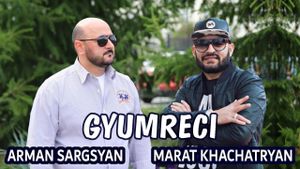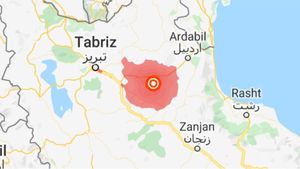Recent political and legal developments in Turkey have sparked significant attention, primarily involving the cooperation between Turkey and Syria, the judicial proceedings against opposition figures, and the geopolitical positioning of Turkey within the region.
On February 6, 2025, Turkish President Recep Tayyip Erdoğan and Syrian Transitional President Ahmed al-Sharaa met to discuss their shared interests, particularly concerning the Kurdish forces in Syria. Their meeting, which took place at the Turkish presidential palace, lasted nearly three hours—double the expected time—indicating positive relations between the two leaders.
Both leaders expressed their aim to dismantle the Kurdish military presence, particularly the PKK militants and the YPG forces, which the Turkish government labels as terrorist organizations. "We must defeat terrorism completely in Syria," Erdoğan stated during the press conference following their talks, with al-Sharaa echoing his sentiments. They discussed the establishment of security partnerships and indicated the potential for increased Turkish military presence and advisory roles within Syria.
Key to their cooperation is the pressing need for Syria's reconstruction. Turkish construction companies are poised to begin work, contingent on the availability of funding. Both Erdoğan and al-Sharaa directly urged the European Union to lift sanctions imposed against the Assad regime, asserting these restrictions hinder humanitarian aid and the rebuilding efforts. Erdoğan argued, "The Syrian people deserve more assistance," clearly pointing out the inadequacy of current EU measures.
The topic of Israeli-Palestinian relations also surfaced during their discussions, with both leaders appealing for Israel to respect the ceasefire conditions and the borders as defined prior to the 1967 war, indicating their support for the establishment of Palestinian statehood.
Earlier, on the same day, German President Frank-Walter Steinmeier labeled Turkey as a central actor during his joint press conference with Erdoğan. He reaffirmed the necessity of pursuing a two-state solution to resolve the Israeli-Palestinian conflict. Erdoğan emphasized Turkey's commitment to collaborating with Germany on issues affecting Gaza and Syria, outlining the increased influence Turkey has gained over the Syrian situation following the fall of President Bashar al-Assad.
On another front, Istanbul's mayor and opposition figure Ekrem İmamoğlu has found himself at the center of legal challenges. Turkey's state prosecutor has requested a seven-year and four-month prison sentence along with a political ban against İmamoğlu, who is accused of publicly insulting officials and threatening those involved in counter-terrorism efforts. İmamoğlu maintains his innocence, asserting the accusations are politically motivated, and defended his comments as protected speech. "The right to free expression includes the right to criticize judicial authorities," he stated during his court appearance.
This legal action against İmamoğlu is indicative of the broader crackdown on dissent within Turkey. Since the last municipal elections, the ruling party has targeted multiple opposition figures, with eleven elected representatives—including two mayors affiliated with İmamoğlu's party—having been ousted from their positions. This repression raises concerns about democratic backsliding, particularly as Erdoğan's government faces mounting opposition.
Recent governmental actions have led critics to accuse Erdoğan of undermining democratic processes to maintain his power. İmamoğlu’s incarceration is not isolated, as numerous journalists and cultural figures have faced similar legal challenges, painting a troubling picture of Turkey’s political atmosphere.
The reports of these developments have intensified discussions about Turkey's democratic integrity and its authoritarian tendencies. Observers, both within Turkey and internationally, are watching closely as these situations evolve, noting the possibility of worsening relations between Turkey and the West if such repression continues.
Turkey's foreign engagements, particularly with African nations, also reflect its changing geopolitical alliances. The Turkish government, which has sought to expand its influence across the continent, benefits from the dissatisfaction among some African nations with Western powers, particularly France. Erdogan's government promotes itself as a moderate Islamic alternative, distancing itself from more radical elements influencing the region.
The interplay between Turkey's domestic legal challenges and its foreign policy maneuvers presents a complex narrative. While signals suggest Erdoğan is seeking regional partnerships (especially with Arab states like Egypt) to counterbalance U.S. and Israeli policies, the increasing authoritarianism within Turkey raises serious questions about the nation's future direction.
Increasing tensions within Turkey's political arena and its strategic ambitions highlight the fragility of its current state. With the presidential elections looming, the legal battles against opposition leaders like İmamoğlu could be pivotal, influencing both the domestic political scene and Turkey's relationships on the global stage.
Whether these developments will achieve desired outcomes remains to be seen, as the political and legal landscapes continue to evolve rapidly.



